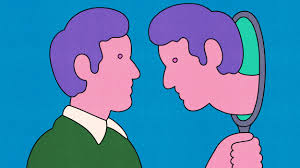 The self: the object of that individual’s own reflective consciousness.
The self: the object of that individual’s own reflective consciousness.
Selfhood implies a first-person perspective and suggests potential uniqueness.
The self plays an integral part of motivation, cognition, affect, and social identity.
It is the regulating center of the psyche.
The self embraces both consciousness and unconsciousness.
Two areas of the brain that are important in retrieving self-knowledge are the medial prefrontal cortex and the medial posterior parietal cortex.
The posterior cingulate cortex, the anterior cingulate cortex, and medial prefrontal cortex are thought to combine to provide the ability to self-reflect.
The insular cortex is also thought to be involved in the process of self-reference.
Representations of the self may fall on a continuum from independent to interdependent.
The independent self is egotistic, unique, critically judgmental, and prone to self-expression.
The interdependent self is altruistic, similar with the others, flexible, conformist, and unlikely to express contrary opinions that would disturb harmony among group members.
Westerners, Latin Americans, and the Japanese are relatively likely to represent their individual self as unique and different from that of others while Arabs, South-East Asians, and Africans are relatively likely to represent themselves as being similar to that of others.
Egoism correlates negatively with individual uniqueness, independent thinking, and self-expression.
Self-reliance correlates strongly and negatively with emotional self-containment.
The philosophy of self describes essential qualities that constitute a person’s uniqueness or essential being.
The self is considered that being which is the source of consciousness, responsible for an individual’s thoughts and actions, or the substantial nature of a person which endures and unifies consciousness over time.
